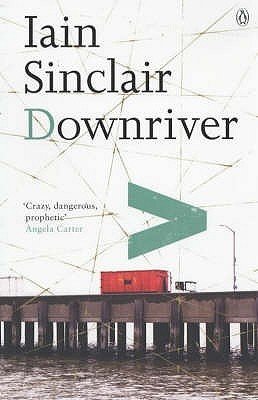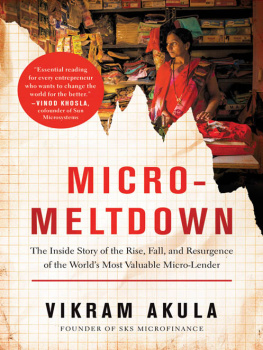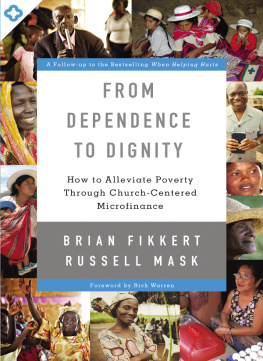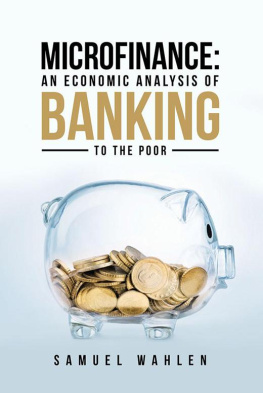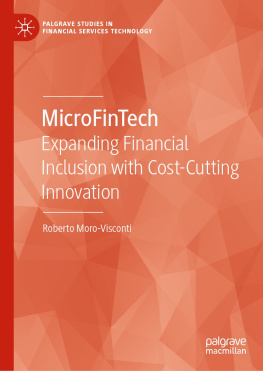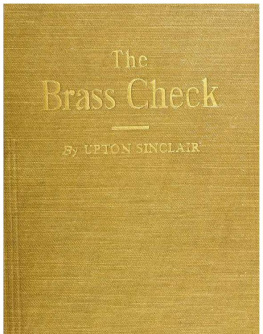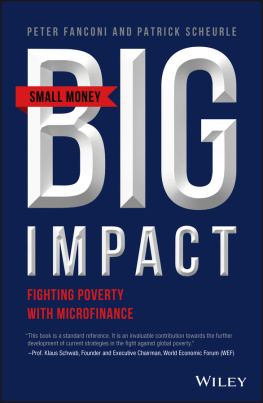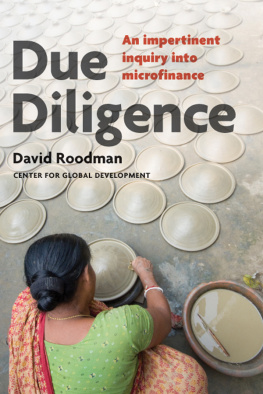CONFESSIONS OF A
MICROFINANCE HERETIC
CONFESSIONS OF A
MICROFINANCE HERETIC
How Microlending Lost Its Way
And Betrayed the Poor
HUGH SINCLAIR

Confessions of a Microfinance Heretic
Copyright 2012 by Hugh Sinclair
All rights reserved. No part of this publication may be reproduced, distributed, or transmitted in any form or by any means, including photocopying, recording, or other electronic or mechanical methods, without the prior written permission of the publisher, except in the case of brief quotations embodied in critical reviews and certain other noncommercial uses permitted by copyright law. For permission requests, write to the publisher, addressed Attention: Permissions Coordinator, at the address below.

| Berrett-Koehler Publishers, Inc.
235 Montgomery Street, Suite 650
San Francisco, California 94104-2916
Tel: (415) 288-0260, Fax: (415) 362-2512
www.bkconnection.com |
Ordering information for print editions
Quantity sales. Special discounts are available on quantity purchases by corporations, associations, and others. For details, contact the Special Sales Department at the Berrett-Koehler address above.
Individual sales. Berrett-Koehler publications are available through most bookstores. They can also be ordered directly from Berrett-Koehler: Tel: (800) 929-2929; Fax: (802) 864-7626; www.bkconnection.com
Orders for college textbook/course adoption use. Please contact Berrett-Koehler: Tel: (800) 929-2929; Fax: (802) 864-7626.
Orders by U.S. trade bookstores and wholesalers. Please contact Ingram Publisher Services, Tel: (800) 509-4887; Fax: (800) 838-1149; E-mail: customer.service@ingram publisherservices.com; or visit www.ingrampublisherservices.com/Ordering for details about electronic ordering.
Berrett-Koehler and the BK logo are registered trademarks of Berrett-Koehler Publishers, Inc.
First Edition
Hardcover print edition ISBN 978-1-60994-518-3
PDF e-book ISBN 978-1-60994-519-0
IDPF e-book ISBN 978-1-60994-520-6
2012-1
Project management, design, and composition by Steven Hiatt / Hiatt & Dragon,
San Francisco
Copyediting: Steven Hiatt
Proofreading: Tom Hassett
Cover Design: Kirk DouPonce, Dog Eared Design
This book is dedicated to the poor entrepreneurs struggling to create a better world for themselves and their families, but in particular to those paying interest rates of over 100 percent a year to line the pockets of a few microfinance banks and their investors.
On a more personal note, I also dedicate this work of financial critique to the man who first taught me finance: my grandfather, William Clark.
Contents
by David Korten
Foreword
By David Korten
Confessions of a Microfinance Heretic provides an insightful, well-documented, and devastating look into the tragic reality of how a good idea was derailed by the same mindless pursuit of financial gain that caused the global financial crash of 2008. It is essential reading for anyone involved in microcredit and for all who are committed to ending global poverty and injustice.
For some twenty years we have heard the story that microcredit is the cure for global poverty:
An amazing visionary economist in Bangladesh named Mohammed Yunus founded the Grameen Bank and demonstrated a simple, effective way to end world poverty. Small, low-cost loans to the poor unleash their entrepreneurial potential and allow them to start profitable businesses that bring prosperity to themselves, their children, and their communities.
It is a winwin solution that doesnt require charity, redistribution, rethinking economic policy, or restructuring existing economic institutions and relationships. Global investments of a few billion dollars can earn an attractive financial return for socially responsible investors and simultaneously banish the scourge of poverty.
Thats the widely received story. The reality that Hugh Sinclair documents in this book presents a very different picture.
Too Good to Be True
Microfinance is now a $70 billion industry and some investors and microfinance institutions enjoy eye-popping returns. The industry falls far short, however, of fulfilling its promise to end poverty. Indeed, as Hugh Sinclair spells out in detail, many microcredit programs are nothing more than predatory lending schemes rebranded as socially responsible investment opportunities.
There are effective microcredit programs. Sinclair describes one in Mongolia that truly serves the poor with low-cost loans used to fund successful microbusinesses. Tragically, these may be more the exception than the norm.
I lived and worked in Asia from 1978 to 1992 as part of the foreign aid establishment. During this time I regularly served as a consultant to several Bangladeshi nongovernmental organizations (NGOs) that were pioneering microfinance along with other innovative programs serving the poor. Two that I particularly admired at the time as world-class models of positive NGO leadership are now major players in the international microfinance industry.
Even back in the 1980s, I was concerned that microlending programs could draw energy away from efforts by these same NGOs to address the deeper structural causes of poverty. I also worried that such programs might leave the poor even more dependent on financial institutions over which they had no control.
The microfinance industry Sinclair documents has been corrupted far beyond my worst fears.
Our Human Capacity for Self-Deception
Sinclair predicts that microfinance insiders will seek to discredit him and use vicious attacks to dismiss his conclusions. I urge those who may feel persuaded by these attacks to bear in mind what Nobel Prize winner Muhammad Yunus said in a 2011 New York Times op-ed. He noted that when he founded Grameen Bank in Bangladesh in 1983, I never imagined that one day microcredit would give rise to its own breed of loan sharks. But it has.
Some of those responsible for the corruption of a noble idea may be true scoundrels. Several of the organizations Sinclair implicates in this volume, however, are led by individuals I have known personally as people of admirable ability, ethics, and intention.
Sinclairs insightful assessment of how even the industrys most honest and respected leaders become trapped by the imperatives and self-justifying stories of the institutions they head is an important contribution of Confessions.
I can relate to their experience. I worked in various capacities with and within the foreign aid system for some thirty yearsrarely questioning its basic premise. It was little more than two months after leaving my post with USAID as Asia Regional Advisor on Development Management that a fresh insight hit me. Foreign aid, as practiced, is almost inherently destructive, because it increases the dependence of poor countries on the goods, technologies, markets, finance, and expertise of rich countries and leaves them exposed to classical colonial exploitation in a new guise.
It is hard to see the truth of a system on which your pay and prestige depend.
Next page


